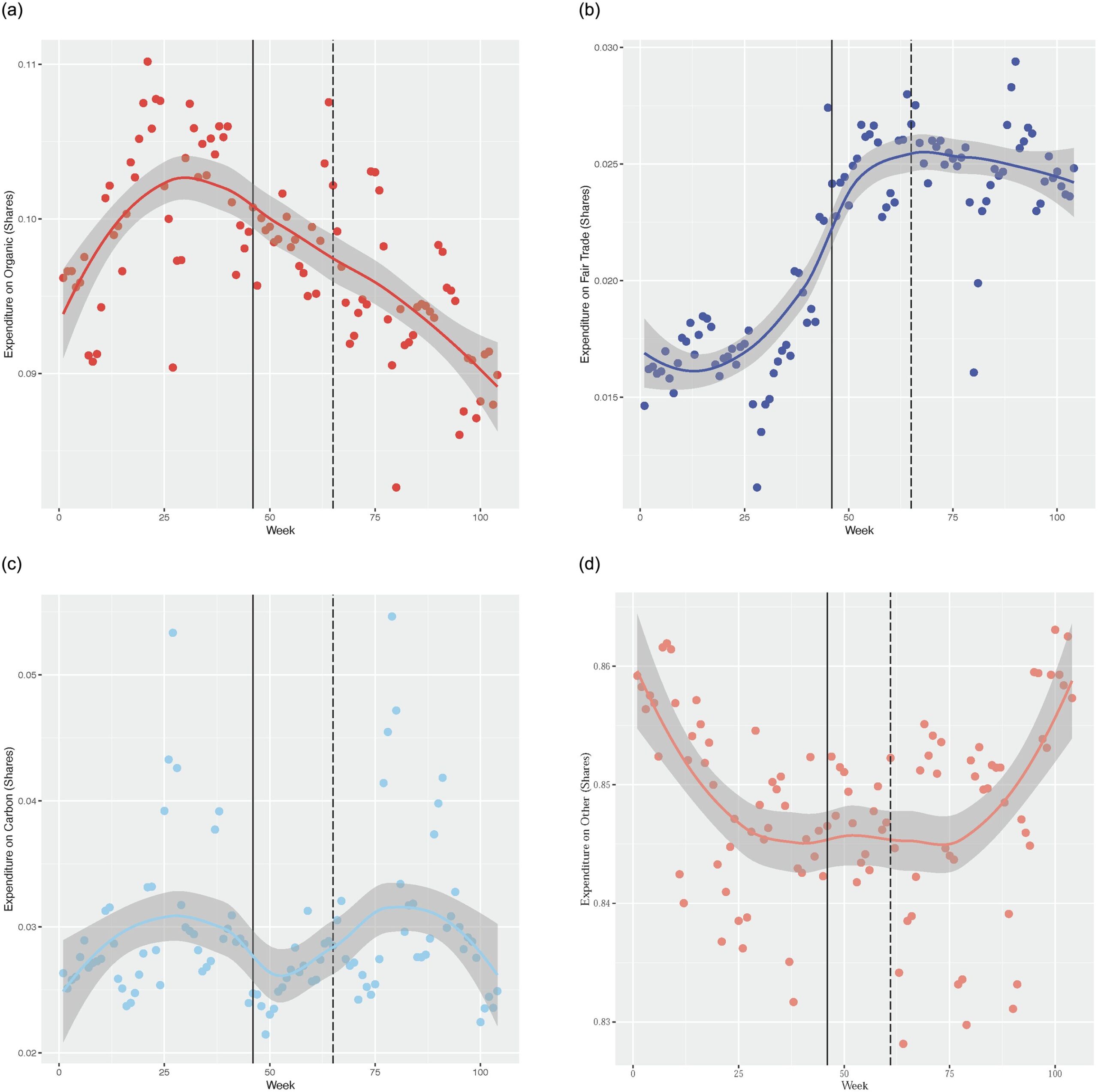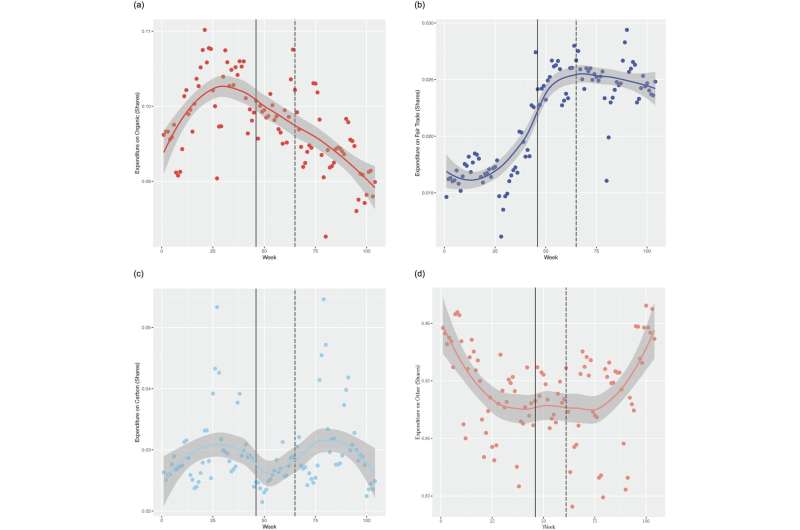

A new study from the University of East Anglia reveals why some ‘eco goods’ may fare better than others as a UK recession looms. The new study, published today, shows that when money gets tight, people are more likely to keep up more expensive ethical purchases like buying fair trade products.
The study is one of the first to look at ethical purchases using actual market data from a major UK supermarket chain.
Lead researcher Dr. Jibonayan Raychaudhuri, from UEA’s School of Economics, said, “As a possible UK recession looms closer, we wanted to better understand how people’s spending might change—especially when it comes to purchasing ethical products—like fair trade coffee or ‘dolphin-friendly’ tuna.”
The team studied the impact of the economic recession of 2008 on consumer expenditure on eco-labeled food products.
They used UK supermarket loyalty card data and showed that the recession had widely different effects on the spending share of different types of eco-labeled groceries.
Dr. Raychaudhuri said, “We found that the amount shoppers spent on organic products declined, but the amount they spent on fair trade products increased over the same period.”
“It’s really interesting that the consumption of some eco-labeled goods—namely fair trade products—held up during the recession.”
“It’s really surprising because we expected that consumers would change their spending during an economic downturn, with the sales share of all eco-labeled products falling—as they tend to be more expensive.”
“We think that in a recession, some consumers become relatively less price sensitive and instead focus more on the public good qualities of products. These public good attributes, therefore, become more salient or important for consumers.”
“Alternatively, shoppers may be fueled by moral motivations, and those who regard themselves as socially responsible will want to maintain that identity.”
“Although we studied data from 2008, we would expect to see similar results today as inflation increases and real wages erode.”
“What this means for shop and brand managers is that labeling products clearly for their corporate social responsibility credentials could help maintain sales.”
“The good news is that, recently, we have seen pay packets stage a mini-recovery, and so this will perhaps further alleviate the fall in eco-labeled consumption expenditure,” he added.
This research was led by the University of East Anglia in collaboration with Prof Ada Wossink from the University of Manchester.
“Ecolabels and The Economic Recession” is published in the journal PLOS ONE.
More information:
Jibonayan Raychaudhuri et al, Ecolabels and the economic recession, PLOS ONE (2023). DOI: 10.1371/journal.pone.0294167
Provided by
University of East Anglia
Citation:
Study shows how ethical brands fare in a recession (2023, December 4)
retrieved 4 December 2023
from https://phys.org/news/2023-12-ethical-brands-fare-recession.html
This document is subject to copyright. Apart from any fair dealing for the purpose of private study or research, no
part may be reproduced without the written permission. The content is provided for information purposes only.





